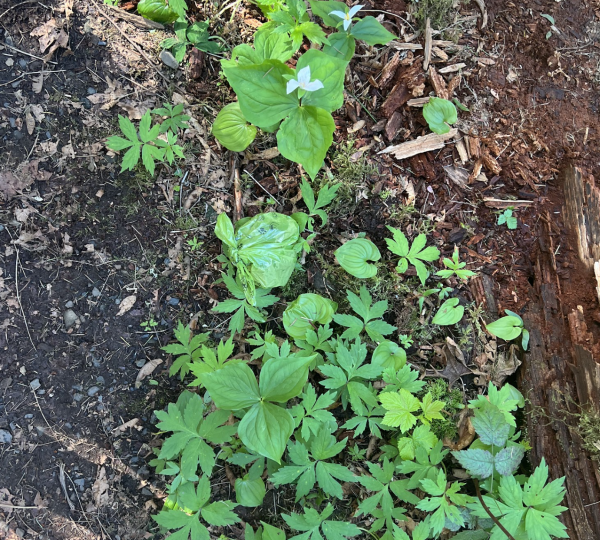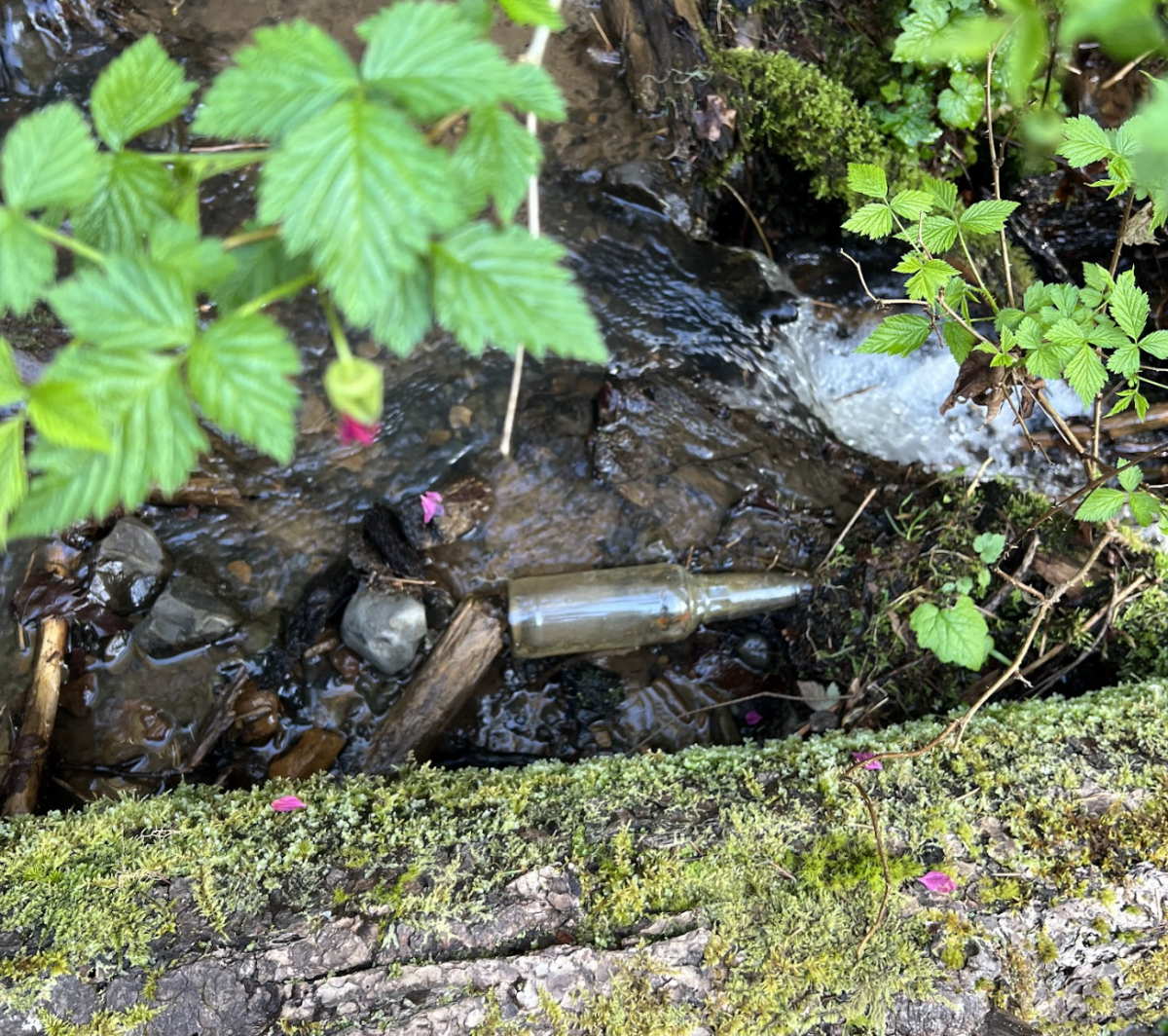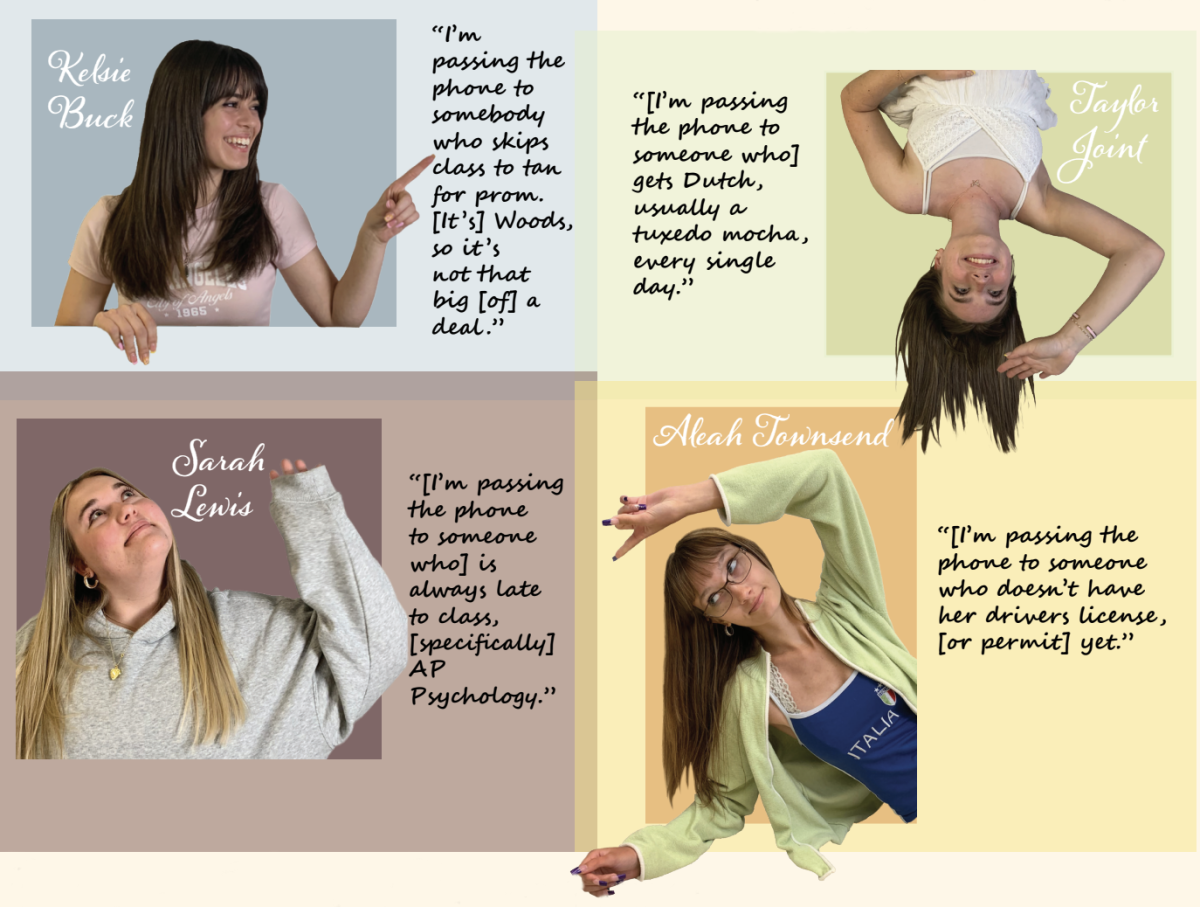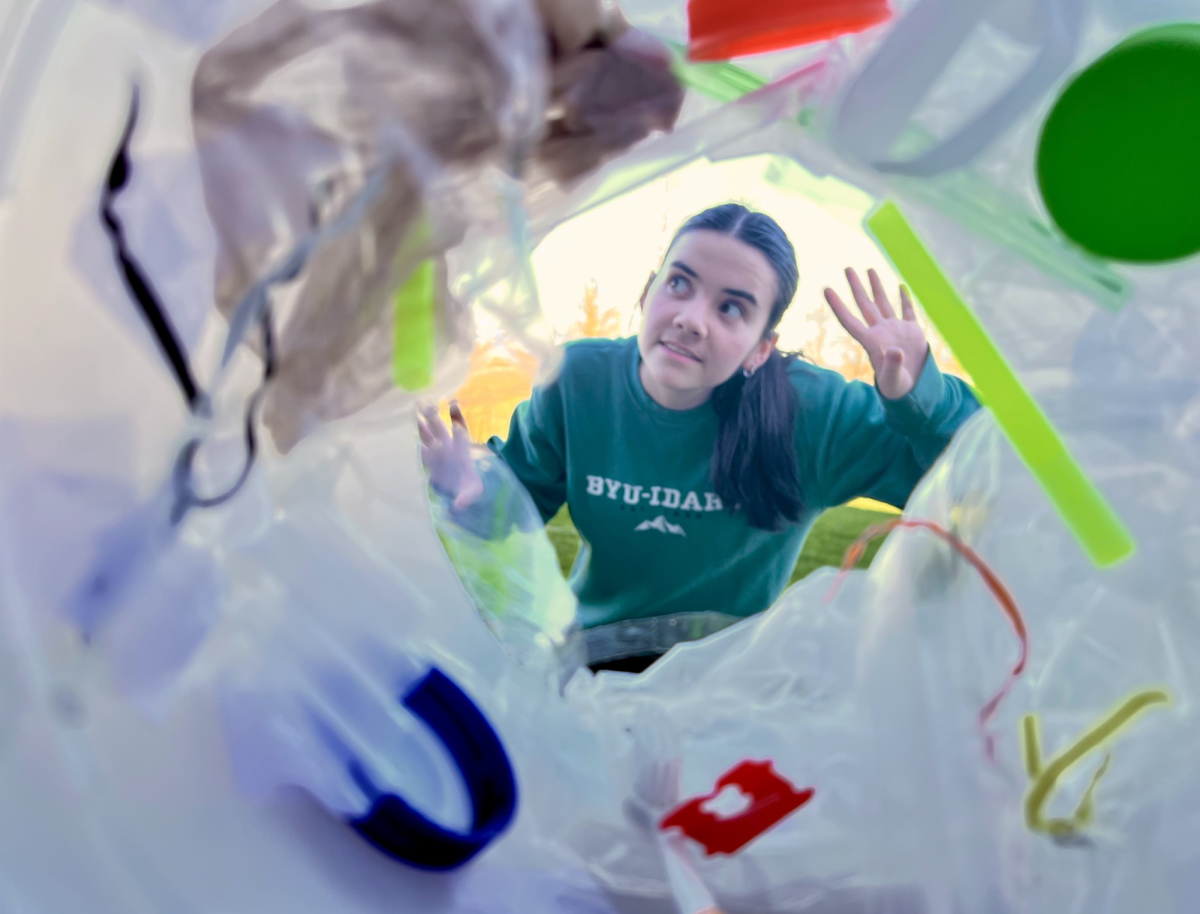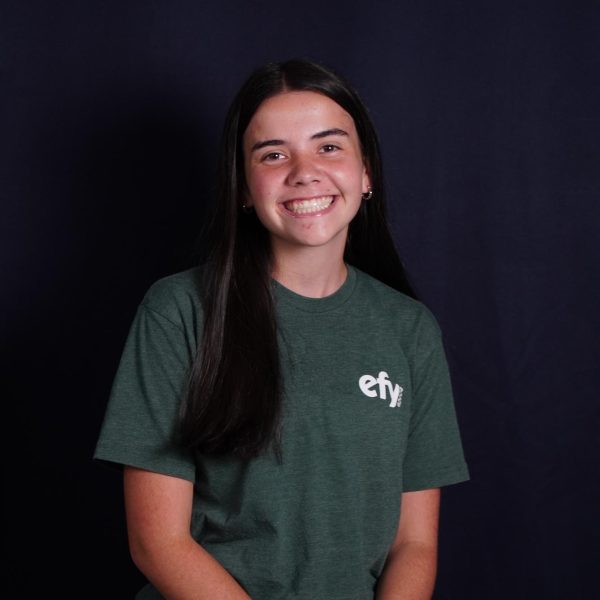There is trash in nature—on the side of the road, in public parks, and deep in the woods. All the trash comes from a consumer, typically a person. A person was responsible for the plastic water bottle lying in the grocery store parking lot and the bag of Cheetos on that mountain hike.
Going on a couple of nature walks and collecting data on the unnatural plastic and trash had brought realization to me that there is trash in places that we don’t immediately think about. There is a lot of litter on our beautiful planet. I found trash that was hidden, left behind, and forgotten. The part that’s sad is the fact that there was someone who made the choice and came to the conclusion that leaving their trash on the ground was okay. 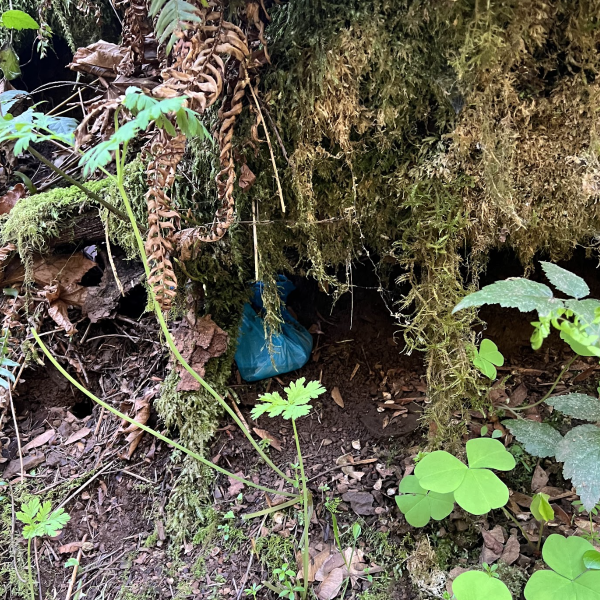
There was a distasteful amount of waste remains found at a hiking spot at Talking Water Gardens in Albany and Millersburg. There were food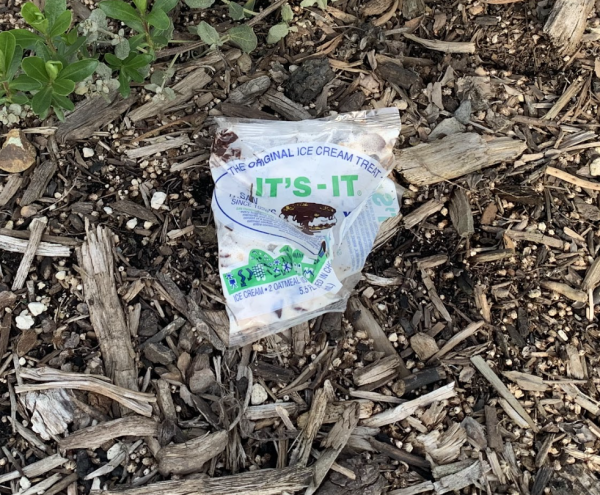 wrappers, abandoned wagons, and cigarette butts dispersed around all the paths. Talking Water Gardens is seen by many visitors, families, hikers, and runners. It’s also inhabited by a variety of animals like snakes, rabbits, ducks, cranes, and turtles. The park provides places to put waste when no longer in use; it provides trash cans at the entrance of the park for easy disposal access; however, people still refuse to carry their trash long enough to throw it away.
wrappers, abandoned wagons, and cigarette butts dispersed around all the paths. Talking Water Gardens is seen by many visitors, families, hikers, and runners. It’s also inhabited by a variety of animals like snakes, rabbits, ducks, cranes, and turtles. The park provides places to put waste when no longer in use; it provides trash cans at the entrance of the park for easy disposal access; however, people still refuse to carry their trash long enough to throw it away.
At the county park of McDowell Falls, initially, there wasn’t too much trash, and I wouldn’t have noticed all that I had if I wasn’t intentionally looking for it. That doesn’t mean there wasn’t a product of a human being hidden somewhere, and there was trash. Like Talking Water Gardens, there were also places to throw out rubbish, yet, to no surprise, there was still litter. I found trash under tree trunks, camouflaged in grass, drifting away in the small creeks by the road, and collecting dirt on the walk paths.
If we just took the extra step to bring our waste to a garbage can or another area intended to store trash, we could keep our planet a little cleaner. If we picked up the trash we found, we wouldn’t have to risk having our fellow inhabitants come across the junk. Our planet won’t become trash-free 100%, but we can try our best to keep our home and community clean and free from this ugly disease. 